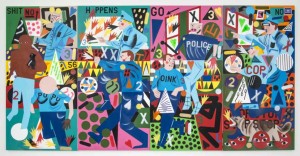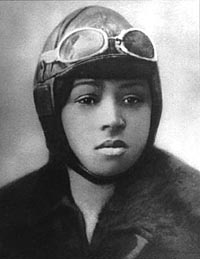Welcome! The TIPHC Newsletter keeps you informed of what’s going on at the Prairie View A&M Cultural Center as well as posting items relative to black history in Texas and beyond, including a calendar of historic dates courtesy of the Texas Black History Preservation Project, and a blog by PV history professor Ron Goodwin. We welcome your feedback and submissions if you have an upcoming black history-related event or if you’d like to add an item to the calendar. — Ed.
How black colleges are taking tech’s diversity issue into their own hands
Despite the 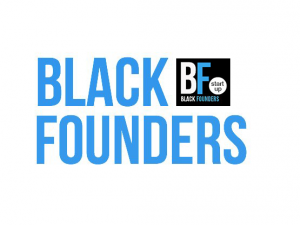 high-tech industry’s insistence that the talent pool for engineering students of color is insufficient, that it is a so-called pipeline problem, data suggests that’s not exactly true. A study in USA Today last year suggested that universities are graduating black and Hispanic computer science and computer engineering graduates at twice the rate that technology companies are hiring them.
high-tech industry’s insistence that the talent pool for engineering students of color is insufficient, that it is a so-called pipeline problem, data suggests that’s not exactly true. A study in USA Today last year suggested that universities are graduating black and Hispanic computer science and computer engineering graduates at twice the rate that technology companies are hiring them.
Perhaps its because they’re looking in the wrong places. The feeder universities for the big tech companies, like MIT and Stanford, have their own diversity issues. (At Stanford, African-Americans represent a paltry 7.8% of undergraduates. At MIT it’s 10%.) In short, tech firms are building pipelines from places without any black people to begin with.
However, the issue of tech diversity is being addressed through a series of events called HBCU Hacks – two-day hackathons held at historically black colleges and universities, organized by the nonprofit organization Black Founders, an organization whose mission is to increase the number of successful black entrepreneurs in technology.
At these events, computer science and engineering students of color spend their weekends to conceive of, code, and hopefully finish some variety of app, game, or technical product. In short, they’re trying to re-route the pipes. One such event was recently held at Howard University. Read the Buzzfeed story here.
Vanderbilt honors Wallace who integrated Southeastern Conference athletics
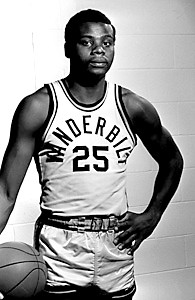 Vanderbilt University in Nashville, Tennessee, is establishing the Perry E. Wallace Scholarship to honor the first African American to play a varsity sport in the Southeastern Conference. The scholarship will be awarded to a student in the School of Engineering, where Wallace earned his bachelor’s degree in 1970. Wallace is now a professor in the College of Law at American University in Washington, D.C.
Vanderbilt University in Nashville, Tennessee, is establishing the Perry E. Wallace Scholarship to honor the first African American to play a varsity sport in the Southeastern Conference. The scholarship will be awarded to a student in the School of Engineering, where Wallace earned his bachelor’s degree in 1970. Wallace is now a professor in the College of Law at American University in Washington, D.C.
After graduating from Vanderbilt, Wallace went on to earn a law degree at Columbia University. He then worked for the U.S. Justice Department and the Environmental Protection Agency. Before joining the faculty at American University in 1993, Professor Wallace taught at Howard University and the University of Baltimore.
The saga of Wallace’s integration of varsity athletics in the Southeastern Conference is told in the biography Strong Inside: Perry Wallace and the Collision of Race and Sports in the South (Vanderbilt University Press, 2014).
Author apologizes for “happy” slavery Illustrations in children’s book — donates writing fee
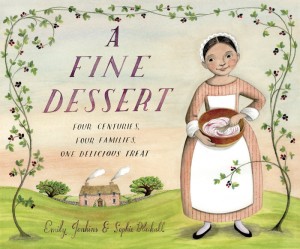 “A Fine Dessert”, a children’s book by Emily Jenkins, is set to be one of the favorites to win the prestigious Caldecott Award. Published in January 2015, the story tells of “four families, in four cities, over four centuries” making blackberry fool – a dessert. However, the book has drawn criticism for “whitewashing slavery” and depicting the era as a pleasant time and “erasing the tribulations of Blacks in American history.”
“A Fine Dessert”, a children’s book by Emily Jenkins, is set to be one of the favorites to win the prestigious Caldecott Award. Published in January 2015, the story tells of “four families, in four cities, over four centuries” making blackberry fool – a dessert. However, the book has drawn criticism for “whitewashing slavery” and depicting the era as a pleasant time and “erasing the tribulations of Blacks in American history.”
Jenkins and illustrator Sophie Blackall were heavily criticized on social media for the images of smiling happy slaves and Jenkins issued an apology on the Reading While White blog, a site created by white librarians with the intent of confronting racism in children’s literature. Jenkins said that she had come to understand that “my book, while intended to be inclusive and truthful and hopeful, is racially insensitive. I own that and am very sorry. For lack of a better way to make reparations, I donated the fee I earned for writing the book to We Need Diverse Books.”
Among the four times and locations is that of Charleston in the year 1810, when the dessert is prepared by a slave mother and daughter for their white masters.
“Their minimized stories
Read more at Your Black Education.
Nina Chanel Abney: Political Black History Paintings
Why, 2015, by Nina Chanel Abney
One viewer of artist Nina Chanel Abney‘s new exhibit called it “the #blacklivesmatter show,” an explanation that promotes the show as a call for justice for African-American police brutality victims. However, a closer look reveals much more in the show which will be on display through January 3, 2016 at Kravets Wehby Gallery, 521 West 21st Street, New York City.
In this her fourth New York solo exhibition, she offers an immersive series of multi-paneled works that form a tightly-knit environment of image, color and text. An Observer.com review says, “Like black history painters before her, such as Robert Colescott and Kerry James Marshall, Ms. Abney has no answers for our problems but has concocted a beautified opus inspired by what seem like insurmountable troubles.
“Ms. Abney’s large-scale works – titled What, Why, When, Who and Where – pervade the space; they give you no exit option, but they also invite you to move around them freely and connectedly.”
Click here for more info.
This Week In Texas Black History, Nov. 15-21
15 — Conrad “Prof” Johnson, director of the legendary Kashmere High School Stage Band and one of Houston’s greatest jazz educators, was born on this day in 1915 in Victoria, Texas. Johnson taught in Houston schools for more than 30 years. He created and led the Kashmere band during its heyday in the 1960s and ’70s when it was among the nation’s best, and traveled across the United States and to Europe and Japan. The band won 42 out of 46 contests it entered between 1969 and 1977, and recorded eight albums featuring more than 20 original compositions by Johnson. The band is featured in the documentary, “Thunder Soul.”
16 — On this date in 1963, tennis professional Zina Garrison was born in Houston. In 1990 at Wimbledon, Garrison became the first Black woman since Althea Gibson to reach a Grand Slam final. In 1989, she reached a career high ranking of No. 4 in the world and teamed with Pam Shriver to win an Olympic gold medal in 1988 in doubles competition in Seoul, Korea.
17 — Basketball player Elvin Hayes, one of the first black athletes at the University of Houston, was born on this day in 1945 in Rayville, La. Hayes was a three-time All-America and was selected as the College Player of the Year in 1968. As a pro, he was the first pick in the 1968 NBA draft by the San Diego (later Houston) Rockets, and would also star for the Baltimore/Washington Bullets. Hayes retired in 1984 as the second-leading scorer in league history with 27,313 points, was inducted into the Naismith Memorial Basketball Hall of Fame in 1990, and was named one of the NBA’s 50 greatest players in 1996.
In brief
November 15, 1966: Bill Russell was named the coach of the Boston Celtics. He was the first African-American head coach in the post-Depression era of any major American sport. He is the only NBA player to ever win 11 championships — two of those as a player-coach. For being a civil rights pioneer on and off the court, he received the Presidential Medal of Freedom in 2011. Two years later, a statue of him was unveiled outside Boston City Hall.
November 16, 1873: Blues composer and musician W.C. Handy was born. Known as “the Father of the Blues,” he became one of the nation’s most influential songwriters. He combined the styles of different performers and helped to give the blues its contemporary form.
TBHPP Bookshelf
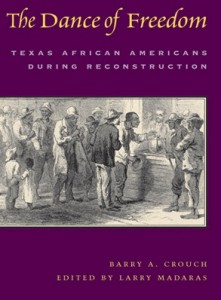 Published scholarship on black history in Texas is growing and we’d like to share with you some suggested readings, both current and past, from some of the preeminent history scholars in Texas and beyond. We invite you to take a look at our bookshelf page — including a featured selection — and check back as the list grows. A different selection will be featured each week. We welcome suggestions and reviews. This week, for Veteran’s Day, we offer “The Dance of Freedom, Texas African Americans during Reconstruction,” by Barry Crouch. Twelve essays by the noted Reconstruction-era historian exploring the African American experience in Texas following emancipation.
Published scholarship on black history in Texas is growing and we’d like to share with you some suggested readings, both current and past, from some of the preeminent history scholars in Texas and beyond. We invite you to take a look at our bookshelf page — including a featured selection — and check back as the list grows. A different selection will be featured each week. We welcome suggestions and reviews. This week, for Veteran’s Day, we offer “The Dance of Freedom, Texas African Americans during Reconstruction,” by Barry Crouch. Twelve essays by the noted Reconstruction-era historian exploring the African American experience in Texas following emancipation.
Blog: Ron Goodwin, author, history professor at PVAMU
Ron Good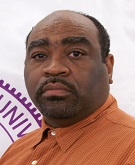 win’s bi-weekly blog appears exclusively for TIPHC/TBHPP. Goodwin is a San Antonio native and Air Force veteran. Generally, his column will address contemporary issues in the black community and how they relate to black history. He and the TIPHC/TBHPP staff welcome your comments. In his latest blog, “Art imitating life(?),” Goodwin draws parallels between the movie “The Hunger Games” and real life scenarios where the poor serve as entertainment for the wealthy as a way of escaping sometimes dire consequences, especially in the black community. Read it
win’s bi-weekly blog appears exclusively for TIPHC/TBHPP. Goodwin is a San Antonio native and Air Force veteran. Generally, his column will address contemporary issues in the black community and how they relate to black history. He and the TIPHC/TBHPP staff welcome your comments. In his latest blog, “Art imitating life(?),” Goodwin draws parallels between the movie “The Hunger Games” and real life scenarios where the poor serve as entertainment for the wealthy as a way of escaping sometimes dire consequences, especially in the black community. Read it
Submissions wanted
Historians, scholars, students, lend us your…writings. Help us produce the most comprehensive documentation ever undertaken for the African American experience in Texas. We encourage you to contribute items about people, places, events, issues, politics/legislation, sports, entertainment, religion, etc., as general entries or essays. Our documentation is wide-ranging and diverse, and you may research and write about the subject of your interest or, to start, please consult our list of suggested biographical entries and see submission guidelines. However, all topics must be approved by TIPHC/TBHPP editors before beginning your research/writing.
We welcome your questions or comments via email or telephone – mdhurd@pvamu.edu, 936-261-9836.
TIPHC Newsletter, Nov. 8-14
“Queen Bess”: Texas aviatrix featured in Smithsonian exhibit
Atlanta, Texas native Bessie Coleman, who became the first licensed black pilot in the world in 1921, is prominently featured in “Black Wings: American Dreams of Flight,” a traveling Smithsonian Institution exhibit that is currently on display at Jacksonville, Florida’s Ritz Theatre & Museum through Jan. 17. Jacksonville was the site of Coleman’s death in 1926 when her plane malfunctioned and she plummeted to her death at the age of 34.
Coleman’s death was headline news across the country. Jacksonville native Opio Sokoni has been pushing for a memorial somewhere in the city to honor Coleman and has suggested a statue or a street, park or school named after her. In 2012, a bronze plaque with Coleman’s likeness was placed at the front doors of Paxon School for Advanced Studies, formerly Paxton Airfield, the site where Coleman’s ill-fated flight began. Among her many honors in Texas, the street leading to the Atlanta airport is named for her as is Bessie Coleman Boulevard in Waxahachie, where she lived as a child.
“I have an all consuming dream of filling the sky with skilled black wings.” — William J. Powell, engineer, soldier, civil aviator and author who is credited with promoting aviation among the African American community.
Kentucky: First African American elected to statewide office
Bowling Green, Kentucky resident Jenean Hampton made history last week becoming the first African-American elected to statewide office when voters elected her and Matt Bevin as lt. governor and governor. Hampton campaigned alongside Bevin throughout the state, and also campaigned for the ticket by herself. A Tea Party Republican, she will be headed to the state’s capital, Frankfort, to help Bevin advance his ideas. Both will be inaugurated on Dec. 8.
In brief
November 12, 1874: African-American actor and comedian Bert Williams was born in the Bahamas. In 1914, he starred in “Darktown Jubilee,” becoming the first African American to appear in a movie. (Prior to this, every African-American character had been portrayed by a white actor in blackface.) Comedian W.C. Fields called Williams “the funniest man I ever saw and the saddest man I ever knew.”
Literary: “Forgotten: The Untold Story of D-Day’s Black Heroes, at Home and at War.” The injustices of 1940s Jim Crow America are brought to life by Linda Hervieux in this extraordinary blend of military and social history — a story that pays tribute to the valor of an all-black battalion (the 320th Barrage Balloon Battalion) whose crucial contributions on D-Day have gone unrecognized to this day.
TBHPP Bookshelf
Published scholarship on black history in Texas is growing and we’d like to share with you some suggested readings, both current and past, from some of the preeminent history scholars in Texas and beyond. We invite you to take a look at our bookshelf page — including a featured selection — and check back as the list grows. A different selection will be featured each week. We welcome suggestions and reviews. This week, for Veteran’s Day, we offer “Racial Borders, Black Soldiers Along the Rio Grande,” by James N. Leiker. When the Civil War ended, hundreds of African Americans enlisted in the U.S. Army to gain social mobility and regular paychecks. Stationed in the West prior to 1898, these black soldiers protected white communities, forced Native Americans onto government reservations, patrolled the Mexican border, and broke up labor disputes in mining areas. African American men, themselves no strangers to persecution, aided the subjugation of Indian and Hispanic peoples throughout the West. It can hardly be surprising, then, that the relations among these groups became complex and often hostile – hardly surprising, but rarely examined.
Blog: Ron Goodwin, author, history professor at PVAMU
Ron Good win’s bi-weekly blog appears exclusively for TIPHC/TBHPP. Goodwin is a San Antonio native and Air Force veteran. Generally, his column will address contemporary issues in the black community and how they relate to black history. He and the TIPHC/TBHPP staff welcome your comments. In his latest blog, “Can’t forget,” Goodwin recalls life and race lessons from his family. Read it
win’s bi-weekly blog appears exclusively for TIPHC/TBHPP. Goodwin is a San Antonio native and Air Force veteran. Generally, his column will address contemporary issues in the black community and how they relate to black history. He and the TIPHC/TBHPP staff welcome your comments. In his latest blog, “Can’t forget,” Goodwin recalls life and race lessons from his family. Read it
Submissions wanted
Historians, scholars, students, lend us your…writings. Help us produce the most comprehensive documentation ever undertaken for the African American experience in Texas. We encourage you to contribute items about people, places, events, issues, politics/legislation, sports, entertainment, religion, etc., as general entries or essays. Our documentation is wide-ranging and diverse, and you may research and write about the subject of your interest or, to start, please consult our list of suggested biographical entries and see submission guidelines. However, all topics must be approved by TIPHC/TBHPP editors before beginning your research/writing.
We welcome your questions or comments via email or telephone – mdhurd@pvamu.edu, 936-261-9836.
We look forward to hearing from you and working with you as we build this very important and unique project.

